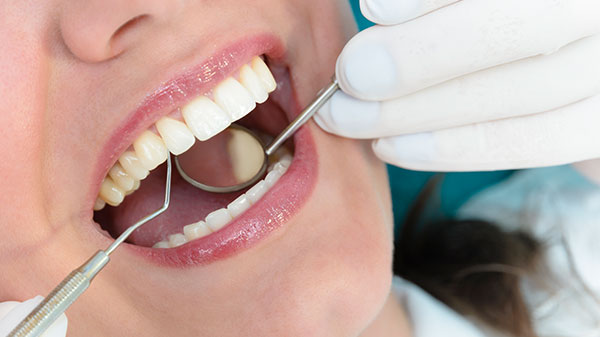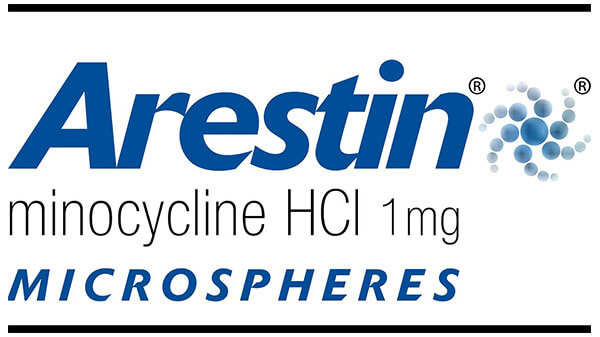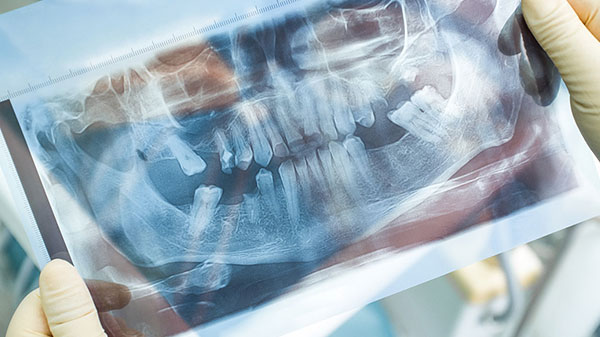Periodontal Procedures in Attleboro, MA

Attleboro Family Dental Care provides periodontal services in Attleboro, MA. Call 508-222-2510 to learn more and schedule your appointment.
Periodontists are dental specialists who focus on the gums and the supporting structures of the teeth. Healthy gums are essential for healthy teeth—there’s even growing evidence that gum disease may impact your overall health by contributing to inflammation in other parts of the body.
Attleboro Family Dental Care offers in-office gum disease treatment with a periodontist, an expert in gum health.
Our treatment can:
- Prevent disease from advancing to a stage where you risk losing teeth
- Eliminate unpleasant symptoms like bleeding gums
- Reverse damage even if the disease is in its later stages
- Lower your risk of conditions associated with gum disease, like diabetes
Most dentists treat gum disease while it’s still in its earliest stage, called gingivitis. At that point, a deep cleaning treatment called scaling and root planing is often enough to reverse its effects. If it progresses to a more serious stage called periodontitis, they may refer you to a specialist.
We have a periodontist on staff, so you won’t have to go to an unfamiliar dental practice for your gum disease treatment. Our periodontist, Dr. Fayez Badlissi, specializes in the prevention, diagnosis, and treatment of gum disease. Unlike many dental practices, we can restore your gums to health even if the disease has progressed to more serious symptoms.
Signs of Gum Disease
Regular dental visits are the best way to prevent gum disease, as they allow us to identify signs of periodontitis in its earliest stages (gingivitis). Some of the most common signs of gum disease include:
- Bright red or purple gums
- Gums that are swollen and bleed when you brush or floss
- Pain when chewing
- Chronic bad breath
- A foul taste in the mouth
- Teeth that feel loose
- Receding gums
If gum disease is left to progress untreated, it can eventually lead to tooth loss.
Gum Disease Treatment
Our first line of defense against gum disease is a treatment called scaling and root planing. This is a simple, minimally-invasive procedure that involves removing plaque and tartar from below the gumline and then smoothing the roots of the teeth in order to encourage the gums to reattach, eliminating pockets where bacteria can collect and attack the gums, teeth, and jawbone. Scaling and root planing is often able to reverse early gum disease in a single treatment. In cases of more advanced gum disease, pocket reduction and other periodontal surgeries may be needed; we use high-tech soft tissue lasers to remove diseased gum tissue with minimal pain and bleeding.
Scaling and Root Planing

Scaling and root planing is a non-surgical procedure used to treat gum disease. During the scaling process, specialized dental instruments are used to remove dental plaque and calculus from beneath the gums. Planing is the procedure used to smooth the tooth's root after the scaling process. Root planing helps the gums heal and reattach themselves to a cleaner and smoother root surface.
Periodontal Splinting
Periodontal splinting is done to stabilize teeth that have become loose as a result of bone loss due to periodontal disease. The doctor will determine if periodontal splints are needed, as sometimes careful management of the periodontal disease causes the teeth to become more stable. Periodontal splints may use stabilizing wire or ribbon, composite resin, crowns, inlays/onlays, and/or veneers to accomplish the goal of stabilizing the teeth.
Arestin®

ARESTIN® is a locally applied antibiotic that delivers minocycline microspheres in the form of a powder. It is placed directly into the infected periodontal pocket at the time of scaling and root planing procedures for easy, targeted treatment. The microspheres adhere to the surrounding surfaces to provide a sustained release of the antibiotic at the site of active infection for effective treatment. It is used in pocket depth reduction and may be used as part of a periodontal maintenance program.
Benefits of ARESTIN® include:
- No local anesthesia required
- No adhesive required
- No dressing required
- No need for removal as the microspheres are completely bioresorbed
- Remains active in the pocket for an extended period of time
Laser Periodontal Surgery

Laser therapy is a revolutionary, minimally-invasive treatment that uses laser technology to remove diseased tissue and bacteria with little or no postoperative pain. The roots of the teeth are thoroughly cleaned and disinfected, and the laser is used to seal pockets so that new bacteria cannot get back in.
Crown Lengthening

Crown lengthening is sometimes necessary before placing a dental crown, but other times it’s performed for cosmetic reasons to recontour uneven gums or to correct a “gummy” smile. We use a soft tissue laser to quickly and painlessly remove excess gum tissue.
Gum Grafting
Gums that have receded aren’t just an aesthetic issue—exposed roots can also cause painful sensitivity that makes it difficult to eat and drink comfortably. Gum grafting allows us to take healthy tissue from another part of the mouth and graft it onto the exposed roots of your teeth, improving appearance and reducing sensitivity.
Bone Grafting

Bone grafting is the replacement or enhancement of bone around teeth. When a tooth is lost, the surrounding bone collapses. Bone grafting is performed to reverse bone loss or enhance bone. The bone can be taken from parts of the body or from synthetic material. Bone grafting allows for proper support of dental implants or prostheses.
Call 508-222-2510 to make an appointment with a dentist in Attleboro, MA today!
Learn More About Periodontal Disease
Periodontal health can be prevented with proper dental care, and treated at each stage.
Learn More About the Stages of Periodontal DiseaseFrequently Asked Questions About Periodontics
Can gum disease be cured?
Yes, in its earliest stages, gum disease can often be cured and reversed with scaling and root planing. In more advanced stages of gum disease, we can halt the active infection and prevent any further damage, but gum grafting and other procedures may be needed in order to repair damage that has already occurred.
What does gum disease look like?
Visual signs of gum disease include gums that are either bright red or purple, swelling, bleeding, and gum recession.
What is the best treatment for gum disease?
Scaling and root planing is considered the gold standard for gum disease. Topical or oral antibiotics may also be needed in order to treat the infection.
Can my teeth be saved if I have gum disease?
Most patients are able to keep their natural teeth if gum disease is treated early and aggressively. Once the teeth begin to shift in the mouth and become loose, they’re at a higher risk of falling out or needing to be extracted, although splints and bone grafts can help stabilize them.
Is gum disease permanent?
Gum disease is not permanent, but its effects can be. With advanced gum disease, we can treat the active infection, but the damage is not easily reversible and typically requires a series of periodontal procedures to stabilize the remaining teeth and restore healthy gum tissue.
Call 508-222-2510 to schedule your appointment.
